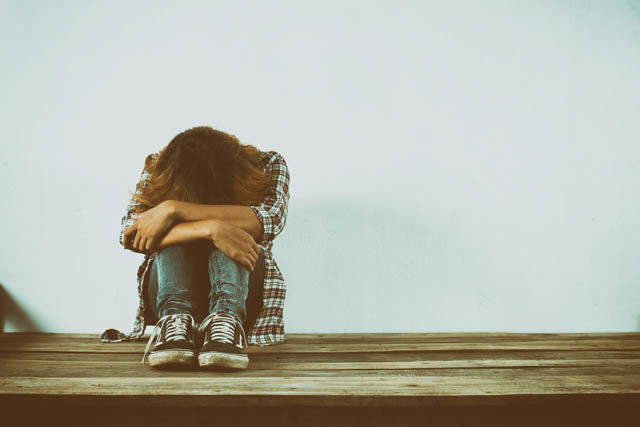From a land of snake charmers, women who perform Sati, and child marriages, India has come a long, long way. We have progressed in every field possible and our ideologies have matured. We are more accepting and more encouraging now. However, the society is not yet a Utopian one. We are still battling with internal demons like corruption, human trafficking, poverty and social stigmas. One of these is how we perceive mental illnesses. After all this while, unfortunately, mental illness is still a taboo concept in India. It is high time we grasp the gravity of the situation and grow up. Mental health and well- being need to be a priority, especially in today’s stressful times.
WHAT IS MENTAL ILLNESS?
According to Mental Health America, A mental illness is a disease that causes mild to severe disturbances in thought and/or behaviour, resulting in an inability to cope with life’s ordinary demands and routines. There are more than 200 classified forms of mental illness. Some of the more common disorders are depression, bipolar disorder, dementia, schizophrenia and anxiety disorders. Symptoms may include changes in mood, personality, personal habits and/or social withdrawal. The severity may be mild or intense, depending upon the individual. Contrary to popular belief, mental illnesses are highly common and probable. Also, they do not conveniently ‘go away with time’ like bruises or scars. They need to be healed and tended to.
WHY DOES IT MANIFEST?
There are no specific causes or triggers for mental illnesses. They may be common factors, or unique to the individual. Some common cause factors for mental illnesses include- deprivation and poverty, illiteracy or limited education, lifetime disorders such as panic, phobia, generalized anxiety disorder, alcohol dependence, drug abuse etc. Sometimes, an individual’s life may seem perfect and yet they may end up suffering from a mental disorder. Finances, break- ups, parental issues, failures in life- anything may trigger this illness. So do not be judgemental, for mental disorders do not discriminate between the Blacks and Whites, or the rich and poor.
They may be of three types:
- Major mental disorders: Easy to recognize and treat in mental hospitals.
- Minor mental disorders: Are common in community
- Invisible mental disorders: Not easy to recognize and treat as it is related to the behaviour of an individual.
Common symptoms include- confused thinking, prolonged depression, feeling of extreme highs and lows, changes in sleeping and eating habits, suicidal tendency, intense fear etc. Many of these conditions are caused by a combination of genetic, biological, psychological, and environmental factors- not personal weakness or a character defect; there are no preventive ways; it may happen to anyone. Recovery from a mental illness is not simply a matter of will and self-discipline.
WHY IS IT A TABOO?
We Indians are too concerned about what others think. This needs to stop. We must respect each other’s opinions and issues. Many of us cannot understand or recognize symptoms of mental illnesses; even if we do, we do not know what to do or how to go about it. Unhealthy relationships with parents means youngsters end up hiding their mental condition from them, for fear of judgement and mockery. Outsiders are unable to understand and accept, and patients are scared and confused to speak out- It becomes a vicious circle.
COMMON MYTHS
-
Mental illness is caused by a personal weakness.
-
People with a mental illness never get better.
-
People with a mental illness should be kept in hospital.
-
Mental health problems do not affect children or youth. Any problems they have are just part of growing up.
-
It is the parents’ fault if children suffer from mental health problems.
HOW TO LOOK AT THIS ISSUE
- DO NOT try to run away from the issue. If you feel you may be suffering from a mental disorder (no matter how mild or serious your symptoms are), please speak out. Accept it. If you are a parent/ guardian/ friend or someone you know who may be suffering from this problem, help out. Don’t humiliate or belittle someone’s trauma.
- Don’t think of a mental patient as ‘crazy’ or ‘mad’. It is a matter of the mind. A person may be as sane as you, yet have a part of his/ her mind that is causing trouble in the general mood or behavioural pattern of the patient.
- Shatter misconceptions or stereotypes regarding mental illnesses. Work hard to go beyond social stigmas and age- old beliefs related to the treatment of such cases. “What will people say?”- It is NOT your job to think about this. You should focus on assisting your loved one, without doubts and conditions.
- Be kind and keep an open mind.
- Mental illnesses are common- A study conducted by the National Commission on Macroeconomics and Health in 2005 reported that nearly 5% of India’s population suffers from common mental disorders, such as depression and anxiety.
Patients need to know that their emotions are valid, and they must seek help. Even celebs talk about their mental illnesses openly, then why not you? Take a healthy diet, get regular exercise and avoid stress. Discuss and debate. Go for medication, psychotherapy, group therapy, alternative therapies- whatever helps you.
Your support and kindness can help those who suffer. Fear of not being understood makes them keep quiet and suffer for years altogether, and in some cases may even lead to suicides. They only need people to accept them and listen to them. You must cultivate the right values amongst your family members and have open communication. Spread awareness among people to initiate early treatment.
Act like you can be trusted. Be positive, resourceful and helpful.




























As a patient of bipolar depression ( which eventually got unipolar ) since I was 17, I’ve seen the internal aspects of mental disorders and psychology. And how many, if not most, people have judged me. Your article is a timely one, and should be shared more and more across social media in India.
I’ve studied mental disorders, especially depression, and I know what it is, and what it isn’t. I’ve also taken long courses of medications and psychotherapy as well; now I’m almost 21, but I feel nothing has really helped, and that I’m at the same point where I was 3 years ago, broken, clinically depressed. And they all think I’m only being weak, lazy, or wasting my life deliberately. Still not being able to graduate from 12 and get into University at the beginning of one’s 20’s is……so frustrating.
Anyway I’m glad some youth from India tries to understand it all.